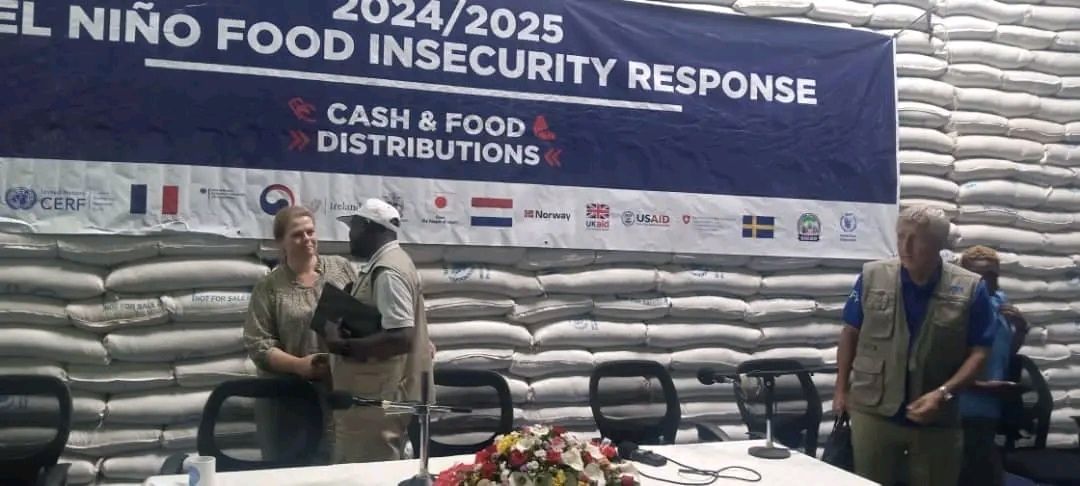By Twink Jones Gadama
Malawi’s Commissioner for Disaster Management Affairs, Charles Kalemba, has made a passionate appeal to donors to support the country in building sustainable food systems.
This call to action comes as Malawi faces a severe food insecurity crisis, exacerbated by the El Niño phenomenon.
Speaking in Blantyre during a joint media briefing with the World Food Program (WFP) Malawi and other donors, Kalemba emphasized that handouts are not a viable long-term solution to the current challenges.

“We need sustainable food systems that can produce enough food at all times,” he stressed.
The numbers are staggering: over 5.7 million people are currently facing food insecurity, according to projections by the Malawi Vulnerability Assessment Committee (MVAC).
Kalemba warned that this situation will persist unless sustainable measures are implemented.
In response to the crisis, the WFP has launched an emergency response program, securing funding to purchase 33,000 metric tons of maize and 317 metric tons of Super Cereal Plus, a corn-soya blend distributed to children.
Paul Turnbull, WFP Malawi Country Director, highlighted the importance of collaborative efforts in addressing the crisis.
“We are committed to supporting Malawi in building resilient food systems,” he said.
Siri Frette Allsted, Head of Cooperation at the Embassy of Norway, echoed this sentiment, emphasizing the need for unity among the international community in responding to the crisis.
Norway has pledged increased support for both immediate and sustainable initiatives.
Malawi’s food systems face numerous challenges, including climate change, environmental degradation, and demographic pressures.
To address these issues, experts recommend promoting production of nutrient-rich foods, ensuring sustainable agricultural practices, and supporting farmers with inputs and extension services.
The Malawi government has shown commitment to transforming the country’s food systems, recognizing the importance of sustainable agriculture and food production.
However, more support is needed from the international community to ensure the success of these initiatives.
As Malawi struggles to cope with the El Niño crisis, the need for sustainable food systems has never been more pressing.
The international community must come together to support Malawi in building resilient food systems that can withstand future challenges.
As Malawi works towards building sustainable food systems, the international community must stand in solidarity with the country. Together, we can ensure that MaPartnerd more resilient from this crisis



